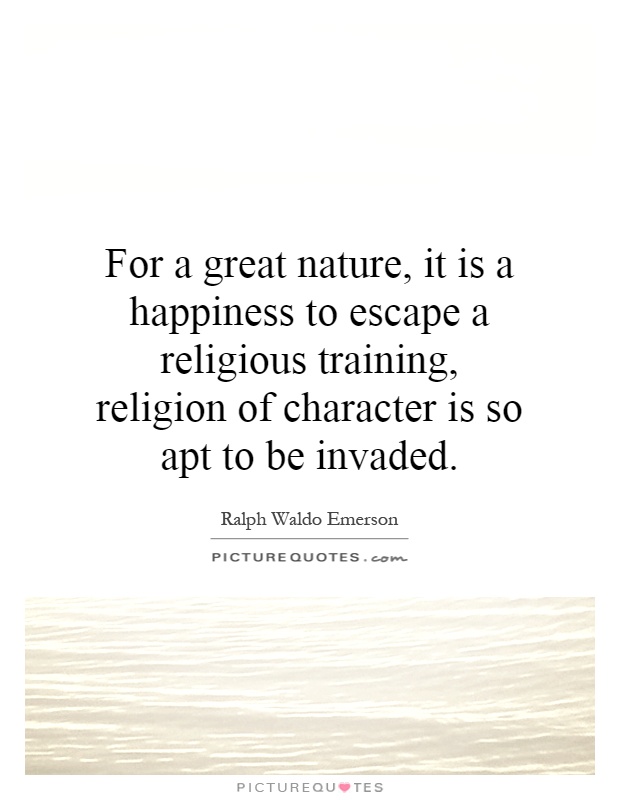For a great nature, it is a happiness to escape a religious training, religion of character is so apt to be invaded

For a great nature, it is a happiness to escape a religious training, religion of character is so apt to be invaded
Ralph Waldo Emerson, a prominent figure in the transcendentalist movement of the 19th century, believed in the power of nature and self-reliance as a means of spiritual fulfillment. In his essay "Nature," Emerson explores the idea that true happiness can be found in escaping the confines of religious training and embracing the beauty and wonder of the natural world.Emerson argues that organized religion often imposes rigid beliefs and moral codes that can stifle individuality and creativity. He believed that true spirituality could be found in the direct experience of nature, rather than through the teachings of a religious institution. For Emerson, nature was a source of inspiration and renewal, a place where one could connect with the divine and find inner peace.
Emerson's assertion that "for a great nature, it is a happiness to escape a religious training" reflects his belief that true spiritual growth comes from personal exploration and reflection, rather than adherence to dogma and tradition. He saw organized religion as a barrier to true enlightenment, as it often imposed limitations on individual thought and expression.
Emerson also believed that religion of character, or the cultivation of moral virtues and ethical behavior, could be easily corrupted by external influences. He argued that true character could only be developed through personal experience and self-discovery, rather than through the dictates of a religious authority.












 Friendship Quotes
Friendship Quotes Love Quotes
Love Quotes Life Quotes
Life Quotes Funny Quotes
Funny Quotes Motivational Quotes
Motivational Quotes Inspirational Quotes
Inspirational Quotes